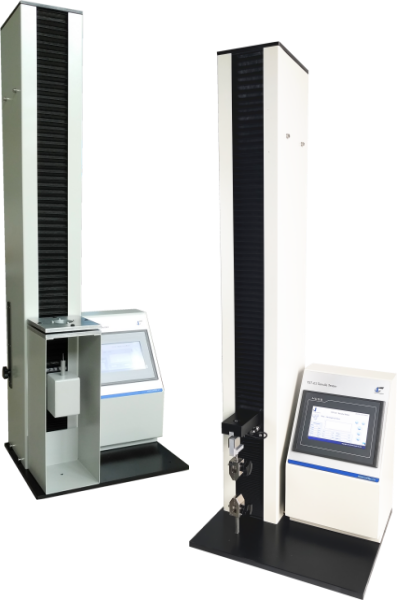Tensile strength is a critical property of plastic films, particularly stretch films, as it determines the material’s ability to withstand stretching forces without breaking. This is a key characteristic for applications such as packaging, where films need to stretch and hold without tearing. Understanding the tensile strength of plastic films, especially stretch films, is vital for ensuring product quality and reliability.
The Significance of Tensile Strength in Plastic Film
Tensile strength refers to the maximum stress that a plastic film can endure while being stretched before breaking. For plastic films used in packaging, like stretch films, this property is essential because it directly affects the material’s performance in various applications. High tensile strength ensures that the film can handle the mechanical stresses encountered during processing, transportation, and end-use. For instance, stretch films need to provide excellent cling properties and stretchability, all while maintaining their integrity under load.
In packaging, films with higher tensile strength are more durable and offer better protection to the products they are wrapping. Whether used in food, medical, or industrial packaging, a high-quality stretch film with good tensile strength can prevent damage, maintain product stability, and ensure safety.
ASTM D882 – Industry Standard for Tensile Testing
ASTM D882 is a widely recognized standard for the tensile testing of plastic films and sheets. This standard provides the procedure for determining the tensile strength, elongation, and other relevant properties of plastic films under controlled conditions. ASTM D882 is critical for manufacturers who need to assess and guarantee the performance of their films, particularly in industries where packaging materials are subjected to rigorous conditions.
The ASTM D882 standard outlines specific test methods to measure the tensile properties of plastic films, which include the testing procedure, calculation of results, and reporting requirements. By adhering to ASTM D882, manufacturers ensure their products meet industry standards and are suitable for their intended applications.
Common Stretch Film Test Procedures under ASTM D882
The ASTM D882 standard provides a comprehensive approach to testing the tensile strength of plastic films, specifically designed for materials like stretch films. Below is an overview of the common test procedures under ASTM D882:
- Sample Preparation:
- Cut the plastic film into standardized dimensions. The length and width are carefully measured to ensure consistency and repeatability.
- Test Machine Setup:
- Set up a universal testing machine (UTM) with appropriate grips to securely hold the plastic film during the test. The machine should be calibrated according to ASTM standards.
- Test Procedure:
- The film sample is placed in the testing machine and is stretched at a controlled rate. During the test, the machine measures the force exerted on the film as it is stretched.
- Measurement of Tensile Strength:
- As the film stretches, the test equipment records the force required to stretch the material. The tensile strength is calculated by dividing the maximum force by the original cross-sectional area of the film.
- Evaluation of Results:
- The final data includes tensile strength, elongation at break, and modulus of elasticity. These values help determine whether the film meets the required specifications for its intended use.
Essential Stretch Film Testing Equipment
Accurate testing of the tensile strength of plastic films requires specialized equipment. The most common and essential tools for performing tensile tests under ASTM D882 include:
Universal Testing Machines (UTMs)
Universal testing machines (UTMs) are the primary equipment used for conducting tensile strength tests on plastic films. These machines are capable of applying both tensile and compressive forces to materials and can be equipped with various grips and fixtures to accommodate different film sizes and testing conditions.

- Load Cell: Measures the force applied to the sample during the test.
- Extensometer: Measures the elongation of the film as it is stretched.
- Grip Fixtures: Specialized grips ensure that the film sample remains securely held during the test without slippage.
Environmental Chambers
In some cases, environmental factors such as temperature and humidity can influence the tensile strength of plastic films. Environmental chambers can simulate specific conditions that may affect the film’s properties, providing more accurate and representative test results.
Data Acquisition and Analysis Systems
Data acquisition systems are used to capture the force and elongation data from the test, which is then analyzed to determine the tensile strength and other mechanical properties. These systems provide detailed reports and ensure the accuracy and reproducibility of the test results.
The tensile strength of plastic films, especially stretch films, is a crucial factor in ensuring the reliability and performance of packaging materials. ASTM D882 provides a standard testing method that ensures films meet industry requirements and perform optimally under real-world conditions. Using the right testing equipment, such as universal testing machines, ensures that manufacturers can obtain accurate data for quality control and product development.
